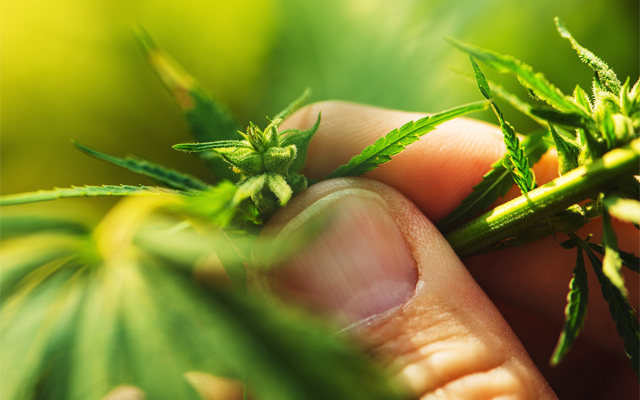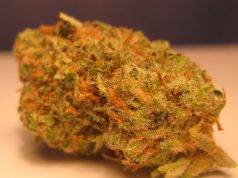Climate change is making a difference in many life aspects, especially for farmers. With climate change making a lasting effect on the integrity of hemp, technologies are being introduced and allowing farmers to grow their crops with more confidence.
Hemp grows under very particular conditions. Just like the Brix scale rates the value of grapes, hemps uses cannabinoid levels to determine not only the value of the crop, but the crops compliance (keeping THC levels below 0.03% THC). If hemp is not grown under strict conditions, the risks for it to retain non-compliant THC levels are high. And considering the legal implication of growing hemp with higher THC levels in parts of the world, this puts farmers on high alert.
The current status of hemp and the hemp farming industry is volatile. According to estimations, 45% of the hemp planted in 2019 wasn’t harvested due to crop failure resulting from cultural weather impacts that affected growth as well as crop THC level non-compliance. Weather could be the reason for farmers to produce a higher yield in a certain year, or struggle to meet demand.
Climate change has become a huge factor in changing weather, directly impacting the industry with change in rainfall patterns leading to drought and flooding, unpredictable extreme weather events, rising temperatures which shift growing seasons, increasing temperature averages, glacial melting leading to flooding and soil erosion, and food availability, accessibility and stability.
Not only does soil play a detrimental role in the growing process, but watering technique and weather are variables that can change the crop from hemp into federally illicit marijuana. THC acts as hemp’s natural sunscreen. Environmental stresses including excessive heat and sun radiation has shown to spike THC levels in hemp plants. Due to the specific chemical profile, the potential THC levels of the crop risk farming businesses with the possibility of growing marijuana.
Once upon a time, farmers would use their instincts and the national weather forecasts. But weather predictions are now available on a minute-by-minute basis and at a 500m radius. This innovation in weather intelligence can have a vast impact on the hemp industry which is so highly dependent on weather.
The growing hemp industry has recognized the need for innovation. The practice of analyzing the crops to indicate their needs has been customized by technology. Combining the growing process with this tool allows for not only a higher percentage of viable crops being harvested but the security to grow hemp without its transformation into marijuana.
Recently, two groups with expertise in both weather tech and agriculture chemical analysts have combined forces to increase hemp yield with compliance to crop THC levels. Ongoing research by ClimaCell, the world’s leading weather intelligence platform and my company, Ionization Labs, an agri-tech chemical data/analytics company, and the developers of the disruptive testing solution, Cann-ID®, have united to help hemp farmers with the yield they produce. Combining weather technology in the field to analyze the crop’s needs alongside cannabinoid testing to assure the viability of hemp farmer’s crops will decrease potential crop loss and destruction.
In addition to diminishing crop loss, the companies are supplying farmers with aggregated data so they are able to identify the best seed, strain, and genetics for a growing area via applied recorded cultural weather patterns, analysis of a plant’s chemical profile, and more. Due to the variables affecting crop growth, this information is an advantage to farmers, giving them more time and more information to determine weather conditions along with information on fertigation and other soil data to ensure the outcome of their yield.
We launched phase 1 of a research project taking place during the 2021 growing season calling on hemp farmers to participate so they could collect multi-variant data including: temperature, dew-point, humidity, wind speed, wind direction, wind gust, baro pressure, precipitation, precipitation type, precipitation probability, sunrise and sunset times, visibility, cloud cover, cloud base, cloud ceiling, surface shortwave radiation, moon phase, O3, NO2, CO, SO2, and other relevant data of weather impact and crop chemical analysis.
Participating farms will receive free weather recording for their farm for the full 2021/22 harvest season along with discounted potency testing and soil testing services available throughout the season. For more details and to apply, farming participants can learn more here: https://climacann.com/farm-weather-tracking.






